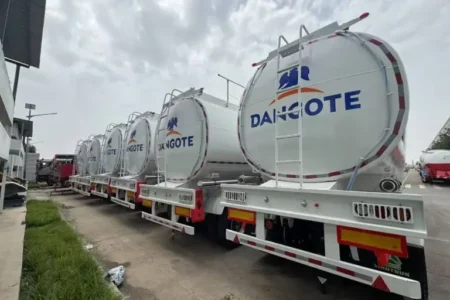The Federal Government has announced that the Dangote Group will redeploy staff earlier disengaged from its refinery operations, following the resolution of its dispute with the Petroleum and Natural Gas Senior Staff Association of Nigeria, PENGASSAN.
The FG further confirmed that redeployed employees will not lose any pay as a result of the redeployment.
Dr. Mohammed Maigari Dingyadi, Minister of Labour and Employment, acknowledged this in a statement made in Abuja on Wednesday.
He said, “After examining the procedure used in the disengagement of workers, the meeting agreed that the management of Dangote Group shall immediately begin the process of redeploying the disengaged staff to other companies within the Dangote Group, with no loss of pay.
“No worker will be victimized arising from their role in the impasse between Dangote and PENGASSAN.”
He also explained that both sides had reached a compromise, noting that “PENGASSAN agreed to start the process of calling off the strike. Both parties agreed to this understanding in good faith.”
The minister also emphasized that “unionization is a right of workers in accordance with the laws of Nigeria, and this right should be respected.”
The group discussions came after earlier talks between refinery management and PENGASSAN failed to reach an agreement on Monday.
PENGASSAN expressed worry over Dangote’s refinery management’s mass transfers and dismissals of union members, which sparked the disagreement.
The group also accused the corporation of replacing certain Nigerian employees with foreign workers, claiming that these activities violated labor rules and harmed local job opportunities.
However, the refinery’s management refuted these charges, claiming that the worker restructuring was due to operational considerations rather than union efforts.
The standoff worsened when the union launched industrial action, cutting off gas and crude oil supplies to the refinery, raising concerns about potential disruptions to the country’s energy supply and economic stability.
The federal government intervened, citing the possibility of “adverse effects on the economy and energy security,” and called high-level discussions to break the deadlock.











